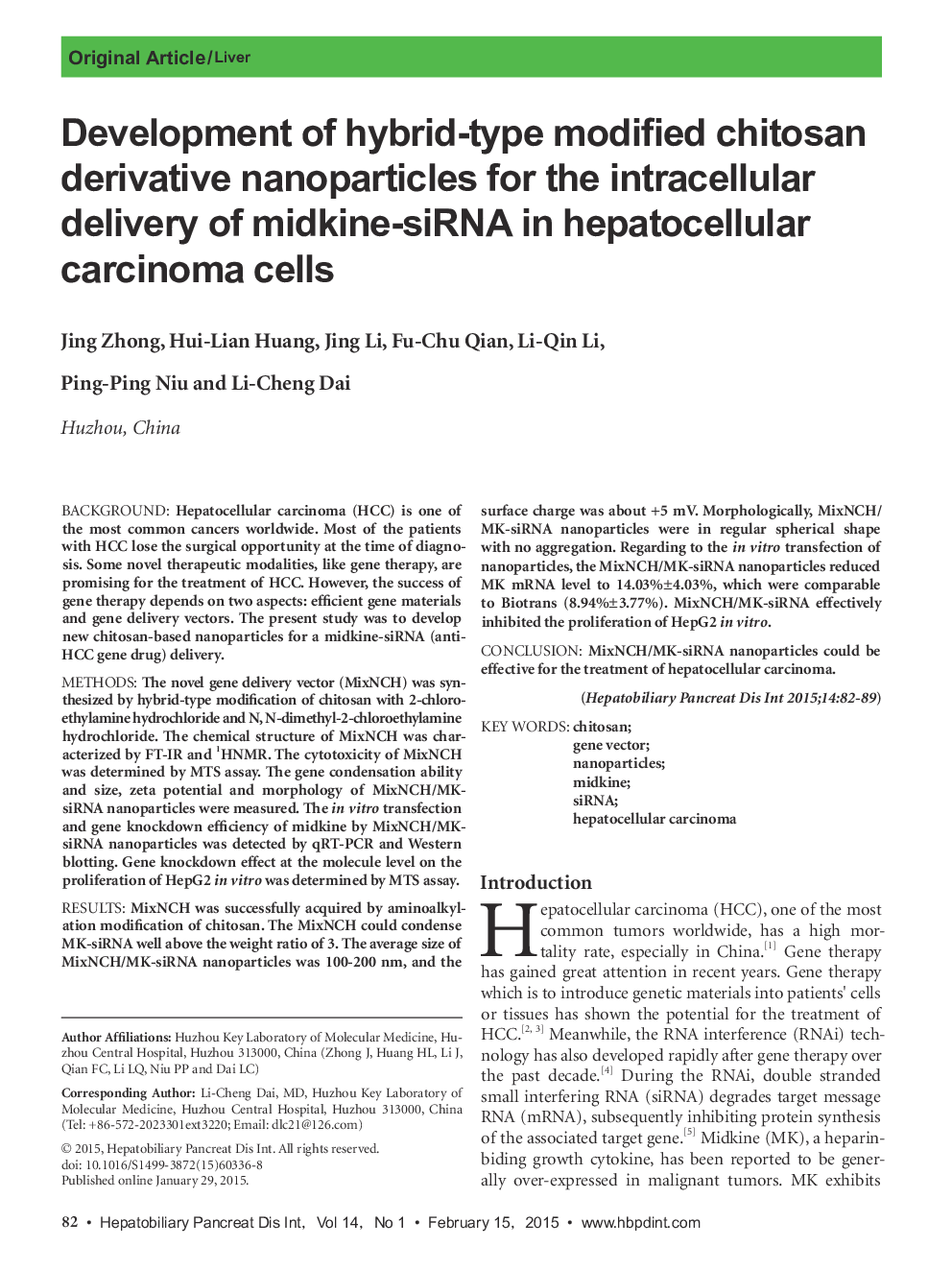| کد مقاله | کد نشریه | سال انتشار | مقاله انگلیسی | نسخه تمام متن |
|---|---|---|---|---|
| 3337285 | 1213792 | 2015 | 8 صفحه PDF | دانلود رایگان |

BackgroundHepatocellular carcinoma (HCC) is one of the most common cancers worldwide. Most of the patients with HCC lose the surgical opportunity at the time of diagnosis. Some novel therapeutic modalities, like gene therapy, are promising for the treatment of HCC. However, the success of gene therapy depends on two aspects: efficient gene materials and gene delivery vectors. The present study was to develop new chitosan-based nanoparticles for a midkine-siRNA (anti-HCC gene drug) delivery.MethodsThe novel gene delivery vector (MixNCH) was synthesized by hybrid-type modification of chitosan with 2-chloroethylamine hydrochloride and N, N-dimethyl-2-chloroethylamine hydrochloride. The chemical structure of MixNCH was characterized by FT-IR and 1HNMR. The cytotoxicity of MixNCH was determined by MTS assay. The gene condensation ability and size, zeta potential and morphology of MixNCH/MK-siRNA nanoparticles were measured. The in vitro transfection and gene knockdown efficiency of midkine by MixNCH/MK-siRNA nanoparticles was detected by qRT-PCR and Western blotting. Gene knockdown effect at the molecule level on the proliferation of HepG2 in vitro was determined by MTS assay.ResultsMixNCH was successfully acquired by aminoalkylation modification of chitosan. The MixNCH could condense MK-siRNA well above the weight ratio of 3. The average size of MixNCH/MK-siRNA nanoparticles was 100-200 nm, and the surface charge was about +5 mV. Morphologically, MixNCH/MK-siRNA nanoparticles were in regular spherical shape with no aggregation. Regarding to the in vitro transfection of nanoparticles, the MixNCH/MK-siRNA nanoparticles reduced MK mRNA level to 14.03%±4.03%, which were comparable to Biotrans (8.94%±3.77%). MixNCH/MK-siRNA effectively inhibited the proliferation of HepG2 in vitro.ConclusionMixNCH/MK-siRNA nanoparticles could be effective for the treatment of hepatocellular carcinoma.
Journal: Hepatobiliary & Pancreatic Diseases International - Volume 14, Issue 1, February 2015, Pages 82-89